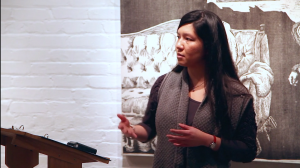I’m a lover of paradox, for those who didn’t know, especially the man-made ones.
In Milwaukee, Wisconsin, you need a parking permit to keep your car on the street at night. You can only park on one side of the street at night and you have to switch sides each day. During the day you can park on both sides for free.
In Madison, Wisconsin, you need a parking permit to keep your car on the street during the day, but it’s free to park overnight. It doesn’t matter which side you choose to park on, as long as you don’t stay in the same spot for over 48 hours.
Oh, and night parking in Milwaukee is defined as 2:00 am to 6:00 am. The permit to park at night is $55 a year.
Night parking in Madison is defined as 6:00 pm to 8:00 am, which is free. A day permit is $21 a year. $21 a year for 10 hours of free daytime parking seems like a good deal unless you compare it to 20 hours of free daytime parking in Milwaukee.
Of course, this is a generalization of the rules. I don’t even get into the quirks of different neighborhoods and zip codes or all the ways you can get ticketed even if you do have permission to park.
So what do you think the law-makers were trying to do when they wrote these policies?
Do you think Madison wants all of its workforce to have day jobs, so they can keep the streets clear during the day while people park at the office? Or to only work night shift if they work downtown? Do you think Milwaukee wants everyone to work the night shift?
What I can conclude from this is that there’s no way to write laws to be beneficial to every type of citizen. A thing that imposes limits cannot be universally applied without consequences.
Also, laws are either terribly written or terribly manipulative, if not both. They’re some of the best examples of humanity trying to be serious and in the process playing a big joke on itself. And anyone who thinks that laws are absolute is kidding himself…if the rules weren’t made to be broken, then we wouldn’t need to create permits to counteract the law that limits parking in the first place, we wouldn’t need fines and tickets as a counter-response to the permit, and we wouldn’t need a judicial system in case anyone wanted to contest the ticket or the original law.
I’ve heard that for anything that’s true, the same on the opposite side of the world is also true.
But you don’t even need to go that far. Two cities less than a 1.5 hour drive apart, with vastly different approaches to parking laws, but I bet you they think they’re working on the same problem. I also bet you that policymakers in both cities don’t think these rules can change, at least not easily.
We people are funny in that way. We think that people are set in their ways, that the hearts and minds of those who differ from us won’t sway, even though it’s people who write the rules that shape our behaviors and beliefs.
We think our man-made rules are as set in stone as the laws that Mother Nature has written. But if she’s taught us anything, it’s that even the stones can change.




